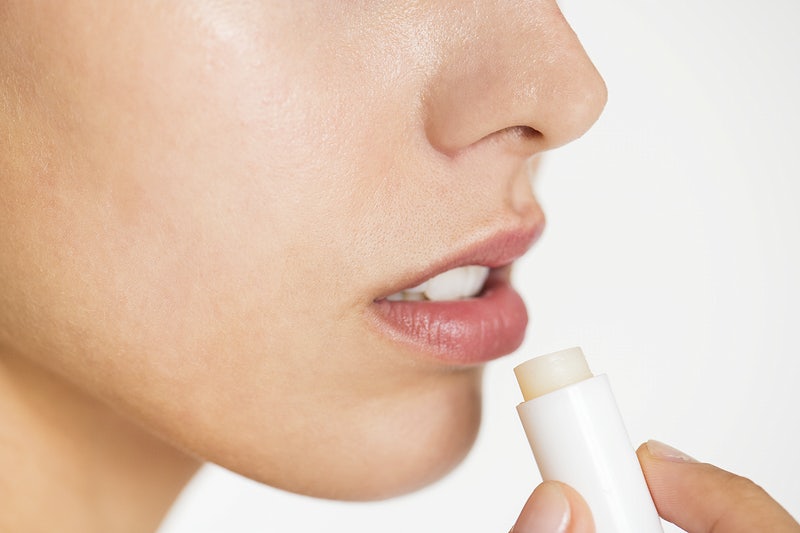Source: Vogue
From ointments to laser treatments, there are multiple ways to get back the original tint of your lips
First things first: Your lips are meant to be darker than the rest of your body, falling within a reddish pink to brown range. This is not the same as the shade gifted by smoking multiple packs a day (thanks heat, smoke and nicotine). There are certain other factors that cause hyperpigmentation or discolouration on the lips. Hyperpigmentation is an umbrella term that denotes discolouration of the skin and is usually a symptom and not a condition by itself.
Typical forms of hyperpigmentation on the face are usually sun spots caused by excessive exposure to sunlight, patches of melasma usually caused by hormonal changes, or the post inflammatory hyperpigmentation i.e. the detritus left behind by acne. The lips however are spared of these forms of discolouration, because the skin here is very different from the face. It’s thinner and more fragile, as well more exposed to everything we shovel into our mouths and saliva, that wonderfully dehydrating agent and chapped lips villain. The discolouration is usually a darkening around the margins or on the insides of the lips where they meet near the mouth. And we want it gone, because the industry is introducing a new lip colour almost every second and it just might be the elixir to fix Zoom blues. We don’t want to miss out.
We spoke to Dr Chiranjiv Chhabra, dermatologist and director of Alive Wellness Clinics, to colour in some details.
So, what causes lip hyperpigmentation?
Turns out it’s fairly common, and some of the causes are unexpected. The most obvious one is an allergic reaction to a new lipstick, lip gloss or lip balm. “It could be a reaction to an ingredient in the product,” says Dr Chhabra. “Or even a reaction to something spicy that you ate. It could be genetic. Or caused by poor oral hygiene. And of course smoking.” Another fairly common cause is dehydration which makes our lips dry and then drier as we keep licking them. “Sometimes people sleep with their mouth open, causing saliva to drip out in angles that line the lips—that’s a cause too,” add Dr Chhabra. As gross as that sounds, it’s still not as heartbreaking as discovering that you can be allergic to your favourite lipstick that you’ve been using for years. “Our bodies change over time, as does its reaction to products. Sometimes the immunity is lower. Sometimes the skin barrier is compromised. So yes, you can develop an allergy to a product you’ve used for a while.”
How to heal your lips
Dr Chhabra recommends you see your dermatologist or GP before you run to the chemist for some over the counter quick fix. There can be multiple factors behind the cause, and it’s only a professional who can narrow it down. “If it’s an allergy, the allergen needs to be identified. Your doctor will then prescribe an ointment to bring down the reaction. In the meantime, you don’t need to throw out all your lip products. Test them one at a time for a few days.”
Process and Products
While your dermatologist would be the ideal person to customise a treatment programme for you, Dr Chhabra outlines a general plan starting with a 1% hydrocortisol cream to be used twice a day to treat the inflammation caused by a possible allergy. “Use any lip balm or oil like almond, extra virgin coconut or olive.” Your doctor might prescribe an ointment to improve the elasticity and strength of the skin of your lips. If these products don’t work in 10-15 days, you can consider laser treatments like Q-Switch or Fractional. The former can show effects in 3-4 sessions depending on how deep the hyperpigmentation is and how long it’s been there. The latter usually takes just one session and works really well for discolouration caused by smoking. “Skin boosters like solutions of hyaluronic acid are also amazing,” says Dr Chhabra, adding an injection of microdroplets improves circulation and elasticity, hydrating the lips and showing results in 24 hours. “A hydra facial uses mild plant based acids or fruit acids combined with a special treatment to deliver effective results.”
Prevention
So you’ve got your pucker back but need to know how to keep it that way? “Avoid using any overly fragranced lip product. Ideally go fragrance free, especially as a protective layer between your lips and your lipstick.” Dr Chhabra also suggests avoiding overly spicy foods, and rinsing your mouth after every meal, using an emollient like almond or extra virgin coconut or olive oil immediately after.
Remember hyperpigmentation is just a signal that your body is giving out, telling you to keep a check on perhaps the spicy bowl of salsa you’ve been tucking into. Aim for the natural colour of your lips—some of us have naturally darker margins that has nothing to do with hyperpigmentation. However if it’s a darkening you’ve just noticed happening over time, maybe it’s time to drop in at your dermat’s clinic.

